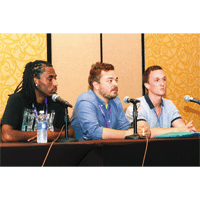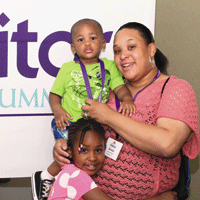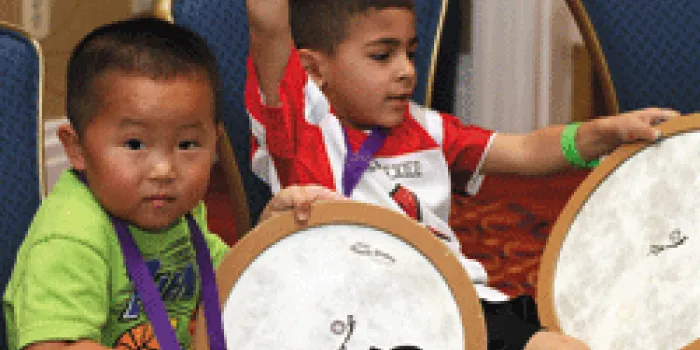For the past 10 years, people with hemophilia and their family members and caregivers have come together for a three-day workshop that provides education, support and a chance to share the experiences of living with one of the most serious conditions that a person with hemophilia can have—an inhibitor (the development of antibodies to infused factor product).
The Inhibitor Education Summits were first held in 2005, providing specialized information for people with hemophilia with inhibitors. Since their inception, the summits have grown both in participation and access, adding Spanish-language summits in 2012. In 2014, three summits were held: a Spanish-language conference in Phoenix, Arizona, May 30–June 1 and two English-language summits, one July 10–13 in Albuquerque, New Mexico, and the other July 24–27 in Baltimore, Maryland. All of the summits are supported by an educational grant from Novo Nordisk.
“When a person with hemophilia has an inhibitor, it affects the whole family,” says Christa Dardaganian, MA, senior director of strategic innovation for NHF. An inhibitor develops when a person with hemophilia has an immune system response to factor product, attacking it as a foreign substance and rendering the treatment ineffective. An estimated 1/5 to 1/3 of patients with severe hemophilia A will develop an inhibitor during their lifetime. An estimated 1% to 4% of people with severe hemophilia B develop an inhibitor.

Michael Brown, Justin Levesque and Chris
Weiss shared their experiences in the session,
“Translations: What Happens After High School.”
People who develop inhibitors have much greater difficulty controlling bleeds. This can result in higher rates of absenteeism from school, work and outside activities and an increased chance of joint damage. Additionally, those who have hemophilia with inhibitors have long struggled with fitting in with the larger bleeding disorders community. Many of the benchmarks of living a successful life with a bleeding disorder, such as being able to play certain sports or participate in camp activities, are simply not realistic for people with inhibitors. As such, they feel isolated by the very community that tries to welcome and include them.
The Inhibitor Education Summit sessions are created by a team of doctors, nurses, social workers and physical therapists, with a curriculum for patients and caregivers, including parents, siblings, partners and spouses. The funding provided by Novo Nordisk covers all summit expenses, including hotel and travel, for each affected person in a family.
The three days of educational sessions cover a wide range of topics. They provide a comprehensive overview of immune tolerance therapy and information for families with newly diagnosed children, including sessions on the importance of treating bleeds. Because of the frequency of joint damage from inhibitors, the 2014 summits included sessions on specific joints: “All About Ankles” and “All About Knees.” Psychosocial issues were covered in a spirituality session. Sessions on reducing stress and addressing pain management were held for children, teens and adults.

Christal Reed gets a squeeze from daughter
Amayae and son Ronald at the
Albuquerque summit.
For Cristel Peake and her husband, John, who live in Northfield, New Hampshire, with their son Seth, who has hemophilia with an inhibitor, the benefits don’t end when the summits are over. “These summits have given me the knowledge and tools I can take back to my HTC, so I can advocate for the best care for Seth,” Cristel says. The Peakes have attended several summits over the years. They feel the opportunity to engage with experts in the field and other families has given them the most valuable tool of all. “Seth has been through some pretty difficult times,” John says. “But when we come here, we get a lot of hope.”

